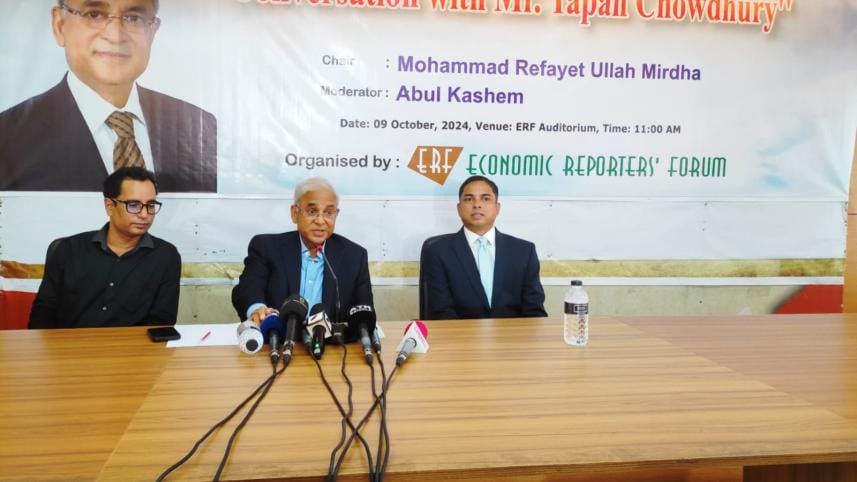Some garment work orders shifted to other countries for labour unrest

Some garment work orders have shifted to competitor countries as a result of the recent month-long spell of labour unrest in major apparel manufacturing belts across Bangladesh.
Renowned entrepreneur and garment exporter Tapan Chowdhury, chief executive officer of Square Group, made the remark during a conversation with members of the Economic Reporters' Forum (ERF) at its office in Dhaka today.
Chowdhury said his company, which produces garment items for leading clothing brands, had seen a portion of work orders shift to other countries, especially Sri Lanka, as buyers want to avoid uncertainty and ensure smooth and timely supply of goods.
However, it is expected that these brands will return with a handful of work orders for his company and Bangladesh as a whole if stability and normalcy are restored.
Chowdhury, also managing director of Square Pharmaceuticals, said the law-and-order situation in major garment-producing areas is better now than it was during the initial days after the interim government was formed.
Replying to queries, he said Bangladesh's graduation from the group of Least Developed Countries (LDCs) should be postponed as the sudden erosion of the preferential trade benefits may present challenges for businesses.
He added that investors had delayed plans to set up industries in the Active Pharmaceutical Ingredients (API) Industrial Park in Gazaria of Munshiganj as gas connections were yet to be provided.
He further said that Square Group plans to list more companies under the conglomerate on the stock markets if better opportunities arrive in the future, although he conceded they are now facing difficulties in managing their two listed companies.
"We are feeling very comfortable after a big change," he said regarding the political changeover and the business environment in the country.
"We are hopeful as the interim government's tenure is short and they want to bring a positive change. The advisers to the interim government are also saying that such an opportunity will not come again."
During a recent visit to the US to attend the United Nations General Assembly, chief adviser Prof Muhammad Yunus asked major clothing brands to source more garment items from Bangladesh, Chowdhury said.
The Square Group CEO also voiced his support for the action being taken by the interim government against corrupt businessmen.
He recalled how he was involved in the family business with his father, where he learned not just to manage day-to-day operations, but also the importance of values and ethics in running businesses.
Chowdhury also mentioned a few instances of how some leading pharmaceutical companies failed to survive due to their tendency to dodge taxes.
He said it was very unfortunate that the reforms adopted by the previous caretaker government were not continued by the immediate past government.
"I want to believe change will come. I hope the interim government will be successful. The political leaders should also know that power does not exist forever."
Although the textile and garment sectors are the biggest and most successful sectors in terms of contribution to the economy, employment generation and women empowerment, they have been facing some challenges due to labour unrest.
However, Chowdhury said the employees of Square are considered family members and this is the main strength of the company's values.
The workers, especially female workers, also have a huge contribution to the sector's success, he said.
"They spend their primes working in the garment sector and then contribute to their families, but it does not affect their productivity," he said, adding that female garment workers in Bangladesh are extremely disciplined.
"We want stability in the country. The decision of who will run the country will come through a vote," he added.
Large industries are investing in the heavy industrial sector and if the opportunity presents itself, Square Group also has plans to invest in large and heavy industries.
Since the county does not have a petrochemical industry, there is a lack of APIs.
Chowdhury added that the price of medicine is fixed through stringent consultation among regulators. As the drug administration monitors the process, companies cannot fix prices at will.
However, he said prices of oncology medicines are higher as most are imported.



 For all latest news, follow The Daily Star's Google News channel.
For all latest news, follow The Daily Star's Google News channel.
Comments